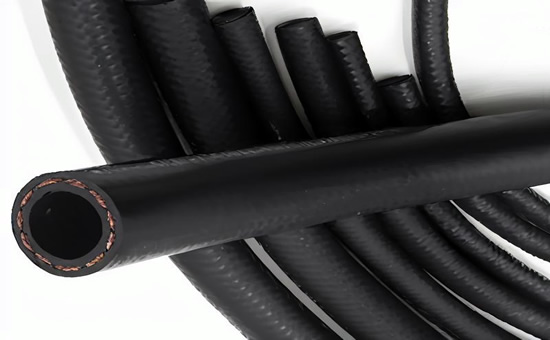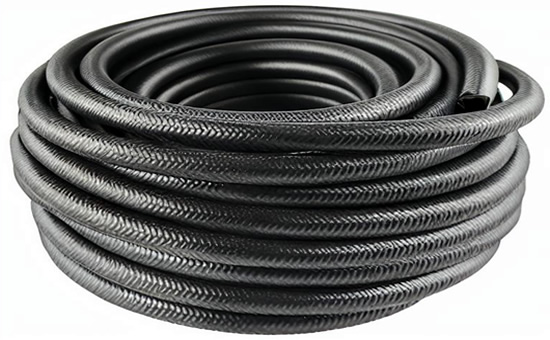
Nitrile recycled rubber is an important recycled rubber material with excellent oil resistance and a wide range of applications in the rubber products industry. In the production process of nitrile reclaimed rubber products, especially in the production of oil-resistant braided fuel pipes, it is very important to choose the appropriate practical formula to ensure the performance and quality of the product. At the same time, there are some key factors that need to be paid attention to in the vulcanization formulation and rubber compounding process to ensure the quality and performance of the recycled rubber.
1. Nitrile recycled rubber is recycled from waste rubber, and the oil resistance of the material needs to be considered when designing the formula of nitrile reclaimed rubber to produce oil-resistant braided fuel pipes.
When choosing additives, additives with good oil resistance should be selected, such as oil-resistant vulcanizing agents, oil-resistant accelerators and oil-resistant antioxidants. These additives can improve the oil resistance of recycled rubber, making it less susceptible to aging and hardening when exposed to oily media, thereby extending the service life of the product.
In the production process of nitrile recycled rubber, adding appropriate amounts of auxiliary materials such as anti-aging agents, plasticizers and reinforcing agents can effectively improve the performance of rubber. Anti-aging agents can extend the service life of rubber, plasticizers can improve the flexibility of rubber, and reinforcing agents can increase the strength of rubber.

The type and amount of vulcanizing agent directly affect the physical properties of oil-resistant braided fuel pipes of nitrile reclaimed rubber. The selection of vulcanizing agent should consider factors such as its compatibility with nitrile recycled rubber, vulcanization speed and vulcanization temperature. Commonly used vulcanizing agents include sulfur, thioether and thiourea. According to the specific requirements, the dosage of vulcanizing agent can be adjusted to ensure the degree and performance of vulcanization of recycled rubber.
2. The production of oil-resistant braided fuel pipes in automobile with nitrile reclaimed rubber also needs to consider the control of vulcanization temperature and time, as well as the uniform dispersion and filling performance of the rubber compound.
In the vulcanization process of oil-resistant braided fuel pipes produced by nitrile reclaimed rubber, it is also very important to control the vulcanization temperature and vulcanization time. Too high a vulcanization temperature will cause aging and hardening of recycled rubber, while too low a vulcanization temperature will affect the vulcanization effect. Too long a curing time will cause waste of energy consumption, and too short a vulcanization time will affect the degree and performance of the curing of recycled rubber. Therefore, it is necessary to reasonably control the vulcanization temperature and vulcanization time according to the actual situation.
In the process of compounding nitrile reclaimed rubber, it is necessary to pay attention to the uniform dispersion and filling performance of rubber. In order to ensure a good combination of recycled rubber and other materials, the rubber mixing process and the amount of additives can be appropriately adjusted. In addition, some plasticizers and tackifiers can be added to improve the processability and formability of the rubber compound.
As an important component for transporting vehicle fuel, the quality and durability of automotive fuel pipes are crucial. When using nitrile recycled rubber to produce oil-resistant braided fuel pipes, the process of formula design and rubber compounding must consider the oil resistance, the selection and dosage of vulcanizing agent, the control of vulcanization temperature and time, and the uniform dispersion and filling performance of rubber compound. Only when these key factors are properly treated and controlled, can the quality and performance of recycled rubber automotive fuel pipes be guaranteed, the cost of raw materials can be reduced, and the application range of nitrile reclaimed rubber can be expanded.
Exclusive original article [commercial authorization] reprint, excerpt and excerpt in any form are prohibited without written authorization. Focus on Hongyun rubber: learn the process formula and raw material technology of producing rubber products from recycled rubber to help you reduce costs and increase profits